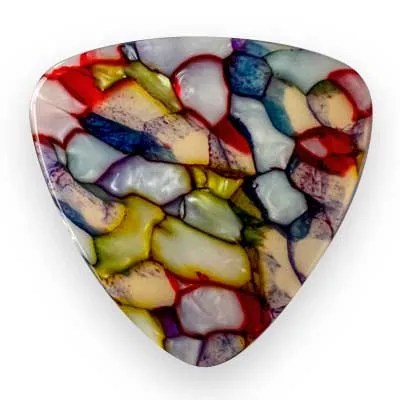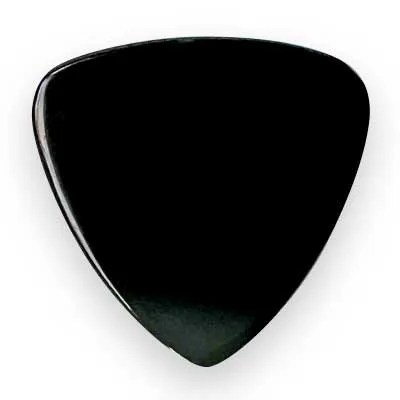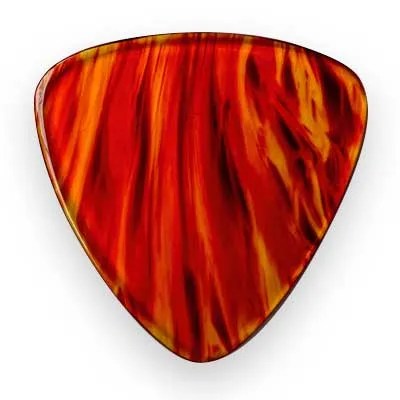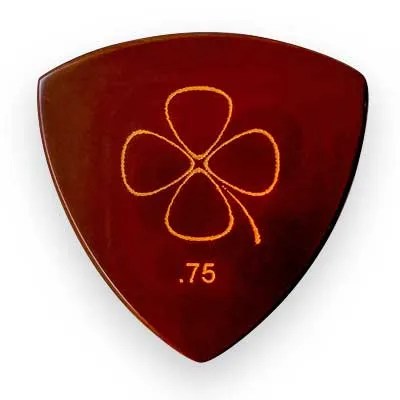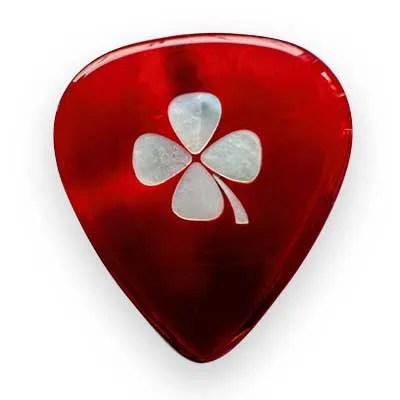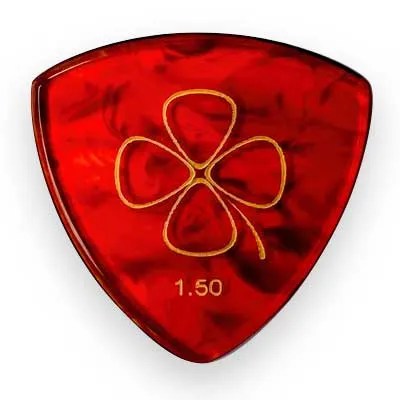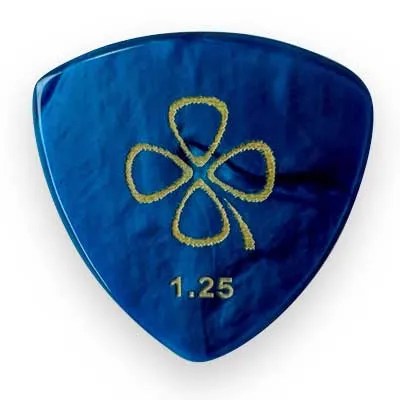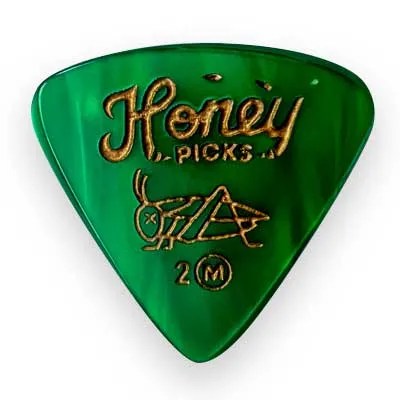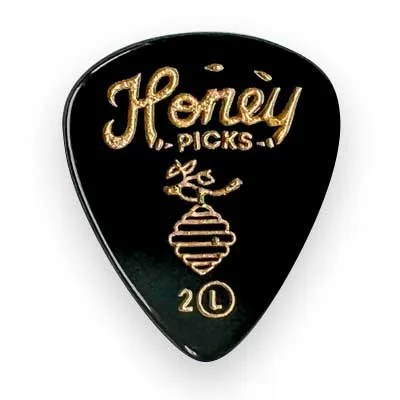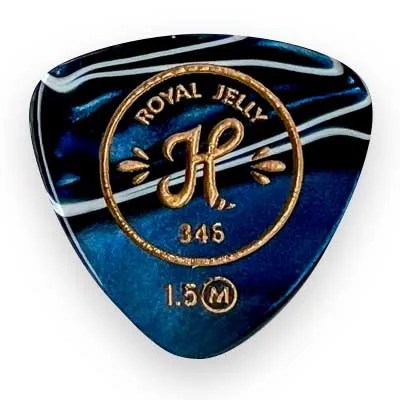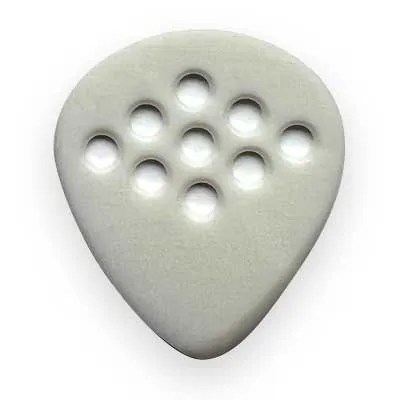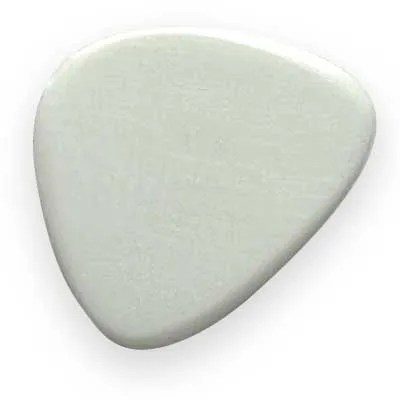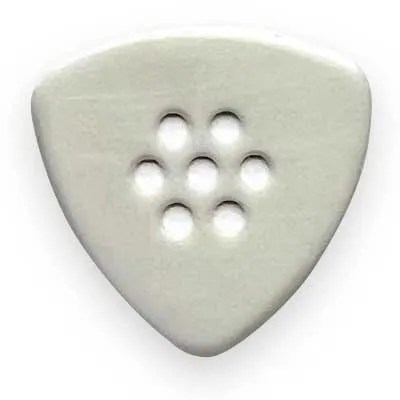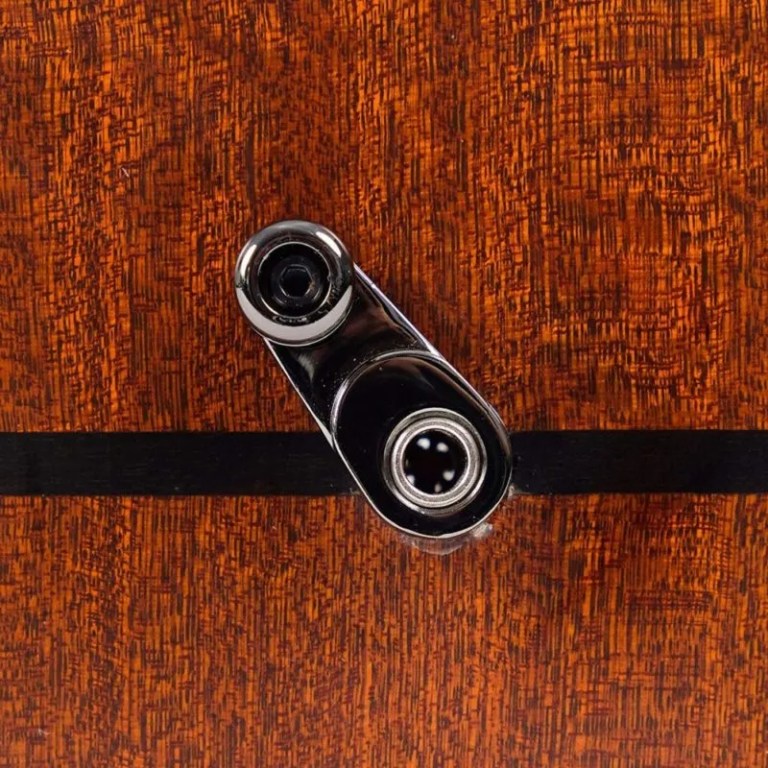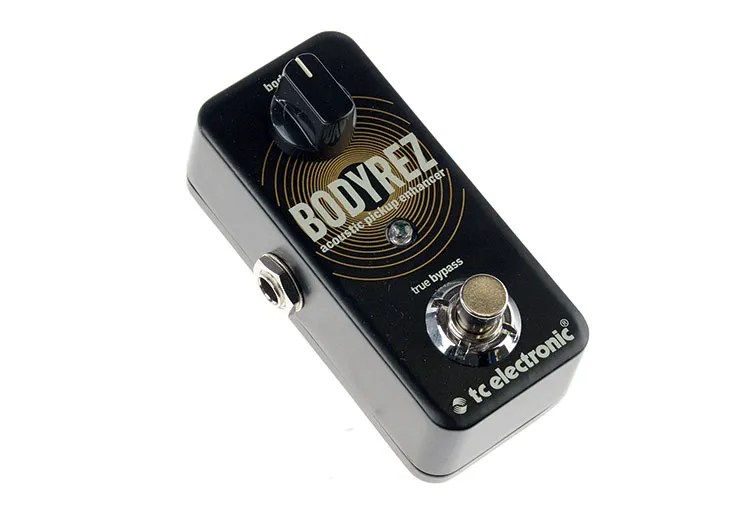Are $45 Guitar Picks Worth the Cost? A Roundup of Tortoiseshell-Alternative Picks from Boutique Makers
When boutique flatpicks first appeared on my radar, I was dubious of the concept, having been perfectly content with the standard, 30-cent variety that I had used for decades. It seemed unlikely that a pick costing literally a hundred times as much could make a drastic difference. But when I tried one five or so years ago, my musical life instantly changed, as it really seemed to wake up all of the guitars I played with it.
The boutique pick market is thriving, with makers working by hand in small batches to produce flatpicks that mimic the tone and feel of those made from tortoiseshell—the former gold standard, but long illegal to produce, given the hawksbill turtle’s critically endangered status. While AG has previously checked out offerings by companies like BlueChip, Red Bear Trading Co., and others, this roundup covers a few other specialized brands—Apollo, Charmed Life, Honey, and Wegenpicks—all of which might change your mind if you, as I once did, scoff at the notion of a boutique pick.
Perfectly Engineered
Wegenpicks is the oldest of the pick companies in this roundup, founded in 2002 by Michel Wegen, a technical engineer in the Netherlands. In the mid-1990s, Wegen was busy making models for museums, theme parks, advertising agencies, and other entities, when a photographer who admired his work asked if he could produce a guitar pick.
Wegen offers a range of flatpicks that he makes himself, from an undisclosed material, and they tend to be thick—as much as 7mm for the 7 model. In addition to a range of standard shapes, he can also custom-make picks to players’ specifications, and his offerings are relatively affordable—a pack of four Bluegrasspicks sells for $16.50. I checked out those, as well as the TF 120 (1.2 mm; $16.50 for two) and Dipper (1.4mm; $17.50 for two).
Wegenpicks offerings are the most plain-looking of the bunch—they are all solid white (also available in black)—but they elicited great tone and definition from the two guitars I used for this roundup, a Collings OM1 A Traditional and a Solomon Phidelity archtop. Though they all feel comfortable, the Bluegrasspick and TF 120 have holes that make them easiest to grip. My personal favorite of the three is the latter, with its larger triangular shape, which works especially well for shifting between strumming and single-note lines.
ADVERTISEMENT
Lucky Sounds
Charmed Life Picks is the brainchild of Scott Memmer, who first became obsessed with flatpicks in the late 1970s, when he bought the last stock of tortoiseshell picks from a local guitar shop after the passage of CITES, the international endangered species protection agreement enacted in 1975. Around ten years ago, Memmer made himself a handful of picks from DuPoint Vespel high-temperature plastic. After he played them at acoustic jams in Los Angeles, his fellow musicians started asking him for their own, and, seeing the potential for a larger market, he founded Charmed Life in late 2015.
Memmer, a tenured English professor at a Los Angeles college by day, now makes Charmed Life picks in his spare time, using DuPont Vespel as well as PEEK (polyether ether ketone) and casein (a synthetic material made from dairy proteins). Prices range from $29.95 for a tortoise casein (1.15 or 1.40mm) to $45 for natural casein bioplastic (1.15 or 1.25mm). Charmed Life also offers the extremely limited Iridescence 351 (2.00mm), made from blood-red casein with an inlaid mother-of-pearl shamrock logo ($99). The company’s website also has a page for substantially discounted blemished and blowout examples of many of its products.
I tried a handful of Charmed Life picks on the Collings and the Solomon and was uniformly impressed by their top-quality feel and sound, not to mention their handsome appearance—especially the Iridescence 351. The top-selling triangular ntf-1.50 (1.50mm casein, $45) is advertised as reminiscent of tortoiseshell, as is the ntb-1.25 (blue casein, $45). I happened to have a genuine tortoise pick at hand for comparison and can attest that this is not marketing hyperbole. The Charmed Life picks sound every bit as warm and balanced, with a distinctively smooth attack.
On the thinner side, the clt-75 (.75mm, $34.50), made from DuPont Vespel, feels and sounds especially great for strumming, providing impressive presence and clarity far beyond the typical medium plastic pick.
Generating a Buzz
Honey Picks are made by brothers Rick and Andrew Calhoun, who work together at a small electronics company in Taylorsville, North Carolina. Rick had long been fascinated with guitar picks and their impact on tone, and in early 2020 it occurred to him to use the resources at his workspace to draw the shape of a flatpick on a CAD program and cut some acrylic with a laser, beveling the pick with a Dremel rotary tool.
ADVERTISEMENT
The company made its official debut in April, 2020, and now offers picks in a wide variety of sizes with insect-inspired names—Beehive, Beekeeper, Bumblebee, Cricket Hunter, etc.—made from acrylic, thermoplastic, Kirinite, Galalith, and wood. The picks come in three sizes: Small is comparable to the Dunlop Jazz III; medium, the Dunlop Flow and Jazz XL; and large, the standard Dunlop 351. Thicknesses range from 0.56mm to 9mm, all beveled by hand, and the picks are priced from $1.50 to $50 each.
I checked out three Honey picks: the triangular medium 2mm Cricket Hunter (Kirinite), which sells for $15; the 1.5 medium Cyclone (Kirinite), also $15; and the large 2mm Onyx Beehive 2mm (cast acrylic), which goes for $8. All feel durable and comfortable to grip, and each has its own appealing characteristics. With its asymmetric tip, the Cricket Hunter is primed for brisk strumming and single-note lines with minimal string resistance. The Cyclone possesses an excellent, crisp sound, and the Onyx has a desirable quickness of attack.
Made to Order
Another new company, Apollo, debuted in October 2020. The picks are handmade by Nik Monnin, a Delaware, Ohio, guitarist and mandolinist who was not completely satisfied with any flatpick on the market and decided to create his own designs in service of the sounds he was searching for. Apollo has already seen some top-shelf endorsers—Monnin makes a Norman Blake signature model, and players like Wyatt Rice and Bill Frisell also swear by his picks.
As a substitute for tortoiseshell, Monnin uses three different materials: vintage or new casein, selling for $40 per pick; PEI (polyetherimide; see the FAQ at apollopicks.com for the fascinating backstory of this material), $35; and PEEK, $30. He offers 11 different triangular and teardrop shapes, from .75 to 4mm in thickness, with their edges varying in roundness. All Apollo flatpicks are custom-made to order, shaped by hand, and come with a 40-day return policy. Apollo’s online store is often closed due to customer demand, so the best way to score the picks is to sign up on the email list at apollopicks.com.
ADVERTISEMENT
For this roundup, Monnin supplied three triangular Apollo picks, one made with 1960s casein, another from modern casein, and one from PEI, each around 1.3mm. Both casein specimens have a beautiful roundness and warmth to their attack, comparable to my benchmark tortoiseshell example. I can’t say that I detect much of a difference in sound, but I’m drawn more to the one made from the new material, with its beautiful rainbow coloring. In contrast, the PEI is a bit brighter and more assertive-sounding. The bevels on all three are perfectly articulated, making it easy to pull off speedy effects like tremolo picking.
The Bottom Line
I was uniformly impressed by all the picks I auditioned. While some offer more bang for the buck, all are top-quality in terms of tone and feel, and provide a more special playing experience than their mass-produced, plastic counterparts. Though these boutique picks might be relatively expensive, they offer a great way to hear your guitars at their best, and even fine-tune your technique. Any serious flatpicker would be remiss not to grab a bunch and experiment!
Special thanks to Gryphon Stringed Instruments, in Palo Alto, California, for supplying the Wegen picks used in this roundup.
Apollo Picks – From $30, apollopicks.com
Charmed Life Picks – From $29.95, charmedlifepicks.com
Honey Picks – From $1.50, honey-picks.com
Wegenpicks – From $16.50/4, wegenpicks.com


